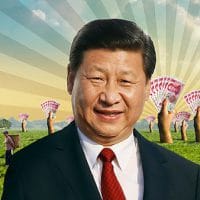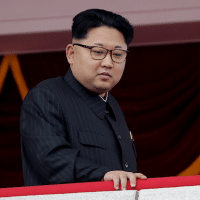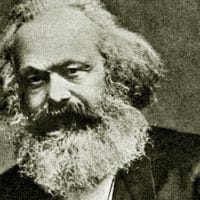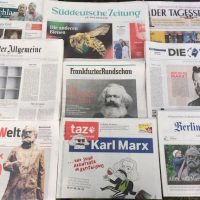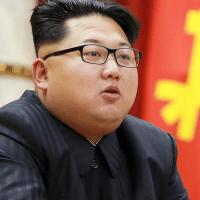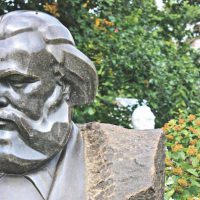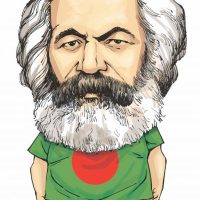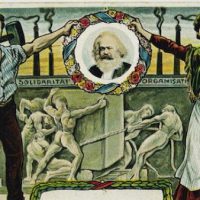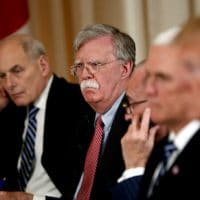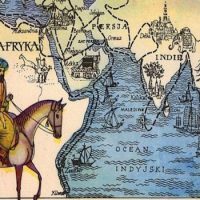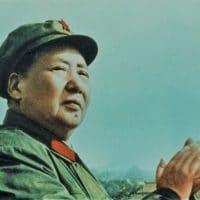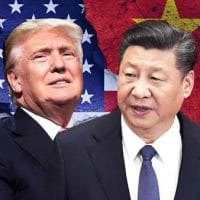-
The war of hunger that afflicts the world’s poor
It is impossible to go anywhere in India without being confronted with the terrible enormity of hunger.
-
The Chinese economy: problems and prospects
The Chinese economy is big. In 2017, it was the world’s biggest based on purchasing power parity. Its output equaled $23.12 trillion, compared with $19.9 trillion for the EU and $19.3 trillion for the U.S.
-
North Korea has good reason to be wary of a Trump deal
Though Trump’s threats against North Korea have lacked some of the grace with which his predecessors operated, to Pyongyang, U.S diplomacy has been marked by 65 years of broken promises and outright aggression.
-
Sunday hits at racists
Organizers of the far-right AfD hoped to get 10,000 adherents for a march on Sunday in Berlin, but their ranks were far thinner, even with buddies from openly pro-fascist gangs. After distributing a thousand or more big German flags, they joined ranks and set off on their anti-foreigner, anti-Islam, anti-leftist Berlin crusade.
-
Office of renowned economists Prabhat Patnaik and Utsa Patnaik double-locked by JNU administration
The two retired professors are internationally reputed scholars, and are serving the honourary position of Professor Emeritus.
-
Meeting Marx: Chinese youth dig Marxism’s appeal
Meet Karl Marx. This is not only a wreath and a silent tribute before Marx’s grave in London’s Highgate cemetery.
-
200 Years later, why Marx remains relevant in an Indian context
The year 2018 marks the bicentenary of Karl Marx, a philosopher and thinker who is partially understood without being read by his critics.
-
Kim Jong Un’s move from nuclearization to denuclearization?
Kim Jong Un’s meeting with Moon Jae-In and the coming summit with Donald Trump do not constitute a volte-face by the North Korean leader.
-
Brzezinski’s ghost shapes Washington Eurasia geopolitics
Contrary to a widely-held belief that U.S. President Trump acts only out of impulse or is being unpredictable, I believe that the opposite is the case.
-
China’s determined march towards the ecological civilization
There is no time for long introductions. The world is, possibly heading for yet another catastrophe. This one, if we, human beings will not manage to prevent it, could become our final.
-
Karl Marx in Bangladesh, Part 2
Did Maulana Bhashani—the famous Red Maulana—ever read Marx? I recently asked this question to a prominent biographer of Bhashani—Syed Abul Maksud.
-
Karl Marx in Bangladesh, Part 1
No I am not talking about my encounter with the ghost of Karl Marx in Bangladesh.
-
Karl Marx: India’s freedom struggle too was influenced by Marxism
Friedrich Engels, while informing a common friend about Marx’s death in March 1883, wrote “…mankind is shorter by a head, and the greatest head of our time at that”.
-
There is a structural crisis of capitalism
In this in-depth interview conducted in Dakar, Samir Amin speaks on a wide range of topics: globalisation; generalised monopoly capital; the alarming growth of inequality; the role of the state in the neoliberal era; globalisation and delinking; capitalism and modernity; the return of fascism in the contemporary capitalist world, and more.
-
Will Bolton cost Trump his Nobel? Powerful interests lined up against Korean peace
Libya is now a textbook example of a failed state and – more importantly from North Korea’s perspective — a testament to what the U.S. government does to countries who threaten its agenda or superpower status, especially ones it persuades to disarm and denuclearize.
-
Ashok Mitra: the doyen among Left intellectuals in India
Ashok Mitra who passed away on May1, 2018, was the doyen among Left intellectuals in the country, held in the highest esteem by one and all for his absolute integrity, his outstanding intellect and his commitment to the cause of the working people.
-
Reflections on the Pan-Afro-Asiatic civilizational complex
The encroachments of European traders, missionaries, explorers, planters, soldiers, and especially scholars and teachers, represented not civilization but rather, its antithesis.
-
China slams U.S. human rights record in devastating report
THE U.S. has been accused of human rights abuses, serious infringements of its citizens’ rights and “systematic racial discrimination” in a damning report released by China.
-
Mao’s legacy defended, and famous swim decoded, for clueless academics
In late 1965 the rumblings of the Cultural Revolution had begun, due to grumblings over corruption, revisionism (“taking the capitalist road,” selling out socialism, etc.) and the snooty technocratism of urbanites. The party, led by Mao, saw these trends as threats to the common good, the revolution, and the Party’s “Heavenly Mandate” – the millennia-old concept that China’s rulers are chosen by Heaven to rule, and that they must actually display this divinity via perfectly moral conduct and leadership…or else revolt is justified.
-
What’s driving trade tensions between the U.S. and China
There is a lot of concern over the possibility of a trade war between China and the US. In early April President Trump announced that his administration was considering levying $100 billion of additional tariffs on Chinese exports, after the Chinese government responded to a previously proposed U.S. tariff hike on Chinese goods of $50 billion by announcing its own equivalent tariff hikes on U.S. exports. And the Chinese government has made clear it will again respond in kind if these new tariffs are actually imposed.


